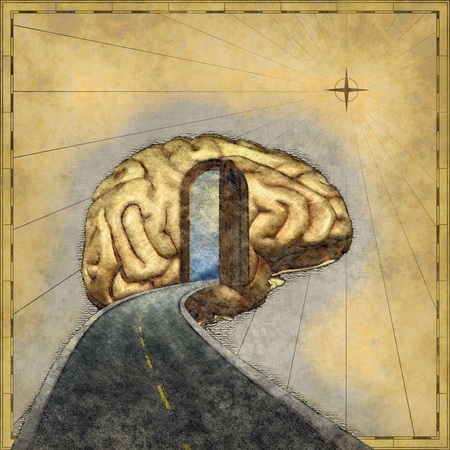You know, from day one, our brains really are the sponges we hear new parents talk about. New parents might not be calling it interpersonal neurobiology, but they marvel at the responses they see in their babies.
Science tells us relationships are powerful in our early lives. They inform our neural pathways and structure our eager brains by the way caregivers do or don’t respond to us.
This is especially true when it comes to social interaction, engaged response, and caring reaction. As babies, we soaked them up the first chance we got, hungry for more.
Innately, we have healthy appetites for continual connection, protection, and affection. Our caregiver responses are like brain food. If we are fortunate to be fed well with healthy interactions, parental attention soothes and primes us for future social success.
Our brains are hooked on relational stuff. We are born to relate and engage.
But why? How is it our brains actually need other people to develop and thrive?
And, if we didn’t experience great relationships early on, will our brains perpetually short circuit when it comes to love and friendship?
Let’s Talk Interpersonal Neurobiology (IPNB)
Okay, So what is IPNB and what does it have to do with your brain and the importance of relationships?
Basically, IPNB is a scientific theory that, at its core, explores the continuous growth of the brain, and how relationships affect, and are affected by, our neurobiology.
A wealth of evidence indicates new experiences facilitate brain growth. Specifically and most effectively, experiencing new empathic, caring relationships.
In short, relationships grow your brain when you’re a baby and can potentially continue to do so over the course of your life.
How do we know this? IPNB founder and pioneer, Dr. Daniel Siegel, Clinical Professor of Psychiatry at UCLA, has done a vast amount of research over the last several decades on the idea. His work reveals that the “mirror neurons” in our brains are always at work, providing information about the people closest to us and their feelings. If we mindfully seek out supportive relationships, our brains will respond. That response is due to something called neuroplasticity, or the ongoing ability to grow new neural pathways.
In a nutshell? Our brains are perpetually teachable. They can heal, reshape, and restructure positively with positive, meaningful interaction.
What a relief, right?
This research indicates that if your initial caregiver relationships were less than ideal, there’s still hope. Thankfully, you’re not stuck with an initial slate of insecure attachments or a deflated sense of self-worth. Your relational mind can literally change.
Let’s consider that a bit more.
Early relationships are formative; later relationships can be transformative
Early on, your brain received its first developmental, default settings depending on the quality of your relationships.
Perhaps you got a happy, soothing, secure set of brain “settings.” You would be considered securely attached. You choose healthy relationships, you feel secure with healthy people, and you’re able to spend healthy time alone. Comprehending and communicating your emotions, and using care and empathy with others, come easily to you. That’s great.
On the other hand, you might have received less nurturing brain “settings.” Thus, you might be considered insecurely attached. You might feel chronically anxious about your connections to others. Or, you might feel the need to avoid or escape strong connections for relief. You might feel like your “picker is broken.” Either way, connecting with others might be uncomfortable or stressful.
Your brain could get stuck in those patterns as difficult connections reinforce your “settings.” The old school of thought used to assume there was little you could do to overcome those early attachment patterns.
Fortunately, Interpersonal Neurobiology says differently. IPNB maintains that mental and emotional transformation occurs through self-awareness and supportive nurturing relationships. You can become fluent in the “language” of emotional connection, change your patterns, and develop healthy relationships.
Why the relationship with your therapist can improve your brain
The professional relationship and interactions with your therapist may prove invaluable.
Why? Together, you can proactively work through conditioned responses to interpersonal stress, negative belief systems, poor attachment, and insecurity. In addition, the supportive relationship provided in therapy will help you form those new neural pathways routinely: first in the office with your counselor, and next as you learn new ways of relating to other people in your life in between counseling appointments.
As your brain grows, you’ll learn to pursue healthy, supportive social ties. You can learn to reduce your interpersonal distress and form new ways of relating to others. The changes in your perception of others and yourself will become an integral part of you as you “rewire” your brain for healthy relationships.
All in all, your early relationship lessons needn’t be your only relationship lessons. Your mind can learn newer, healthier tricks. Your relational life can blossom thanks to the adaptive gifts of your brain.


